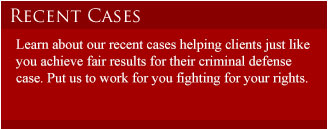Resources
To help you learn more about our practice and prepare for your next appointment with Florida criminal defense attorney Barry D. Maxwell, we have provided the following patient resources on our website. If you would like further information, please give our Palm Beach, Florida law office a call.
Financial Information
We understand this is not an easy time in your life. We want to make your experience with us, including the payment process, as smooth as possible for you. That’s why we accept all major credit cards, and we make payment plans available to our clients. We are negotiable and will work with you to help you afford the professional legal representation you need. As part of our commitment to keep our pricing competitive, we keep low overhead and pass on the savings to our clients, while still providing a high level of representation. For more information, please give our Florida criminal defense attorney, Mr. Maxwell, a call. We will gladly assist you.
FAQ
What should I do if I’m arrested?
If you are arrested in Florida, any statement, whether oral or written, will be considered evidence in court and can be used against you in the prosecution of your case. If a law enforcement officer offers an incentive to sign a document, makes a verbal statement, or forces you to sign anything, advise your attorney immediately. Law enforcement often uses strong-arm tactics to gather evidence to assist with an investigation. If you do not have an attorney, you may request to see one immediately. If you are in doubt about whether you should talk with the arresting officer or other law enforcement officer, you should remain silent until you have spoken with an attorney. YOU HAVE A CONSTITUTIONAL RIGHT TO REMAIN SILENT AT ALL TIMES! Call us immediately if you are in need of legal representation.
Can a law enforcement officer detain you without arresting you?
A police officer may require you to identify yourself and explain your presence at a particular time, without arresting you, if he has reasonable suspicion that you were/are involved in a crime. However, the officer may not remove you from the immediate vicinity without making an arrest, unless you voluntarily accompany the officer to another location.
When are you arrested without a warrant?
In Florida, a police officer may make an arrest without a warrant in the following circumstances:
- When the officer knows a warrant for your arrest has been issued and is still in effect, even though the warrant may be held by another law enforcement officer.
- When the arresting officer has good reason to believe a felony has been or is being committed and that you are the person responsible for committing the felony.
- When a misdemeanor is committed in the presence of the officer.
What rights do you have when questioned by the police?
You have the right to remain silent.
If you decide to say anything, understand that it may, and will most likely be, used against you in court. You have a right to consult with an attorney before answering any questions. If you decide to answer any questions, you can stop at any time, and request that an attorney be present.
Do I need an attorney after being arrested?
After you are arrested for a criminal offense, you should absolutely consult with an attorney! Misdemeanors and felonies have the potential for jail time, probation, or both. Although misdemeanors are less serious than felonies, they require the same focus and aggressiveness in their defense.
How does a prosecutor decide which case to pursue?
A prosecutor generally looks for a legally sound case, or one without obvious defects which would cause it to be thrown out. These defects may include violations of the defendant’s constitutional rights or destruction of evidence crucial to the defense. Next, the prosecutor decides if there is enough evidence to obtain a conviction. Finally, the prosecutor decides if the case fits with the office’s policy objectives, or whether a more informal disposition such as a pretrial diversion may be in order.
Do I need a lawyer to represent me even if I am innocent?
Every criminal defendant needs an attorney for defense litigation. In fact, innocent defendants are in greater need of zealous representation in order to ensure their rights are protected and that the truth prevails. Unfortunately, innocent people do end up in jail, so it is imperative to hire an experienced criminal defense attorney to prevent such a miscarriage of justice.
What can be done to reduce the impact of a criminal law conviction?
In most cases, after a guilty plea or the finding of guilt after a trial, the following options are available for defendants:
- Motion for a new trial or motion to withdraw a guilty plea. These two motions must be addressed on a case-by-case basis, but both motions attempt to set aside the conviction.
- Appeal. Here, the facts of each case must be examined to determine if one can bring an appeal and, if so, whether it would have merit.
- Modification of sentence. In some cases, it is possible to come back before the sentencing judge and ask for modifications on some of the terms and conditions of probation.
- Expungement. In some cases, after a person has successfully completed the terms and conditions of probation, it may be possible to appear before the court and have a conviction expunged or removed from the record.



